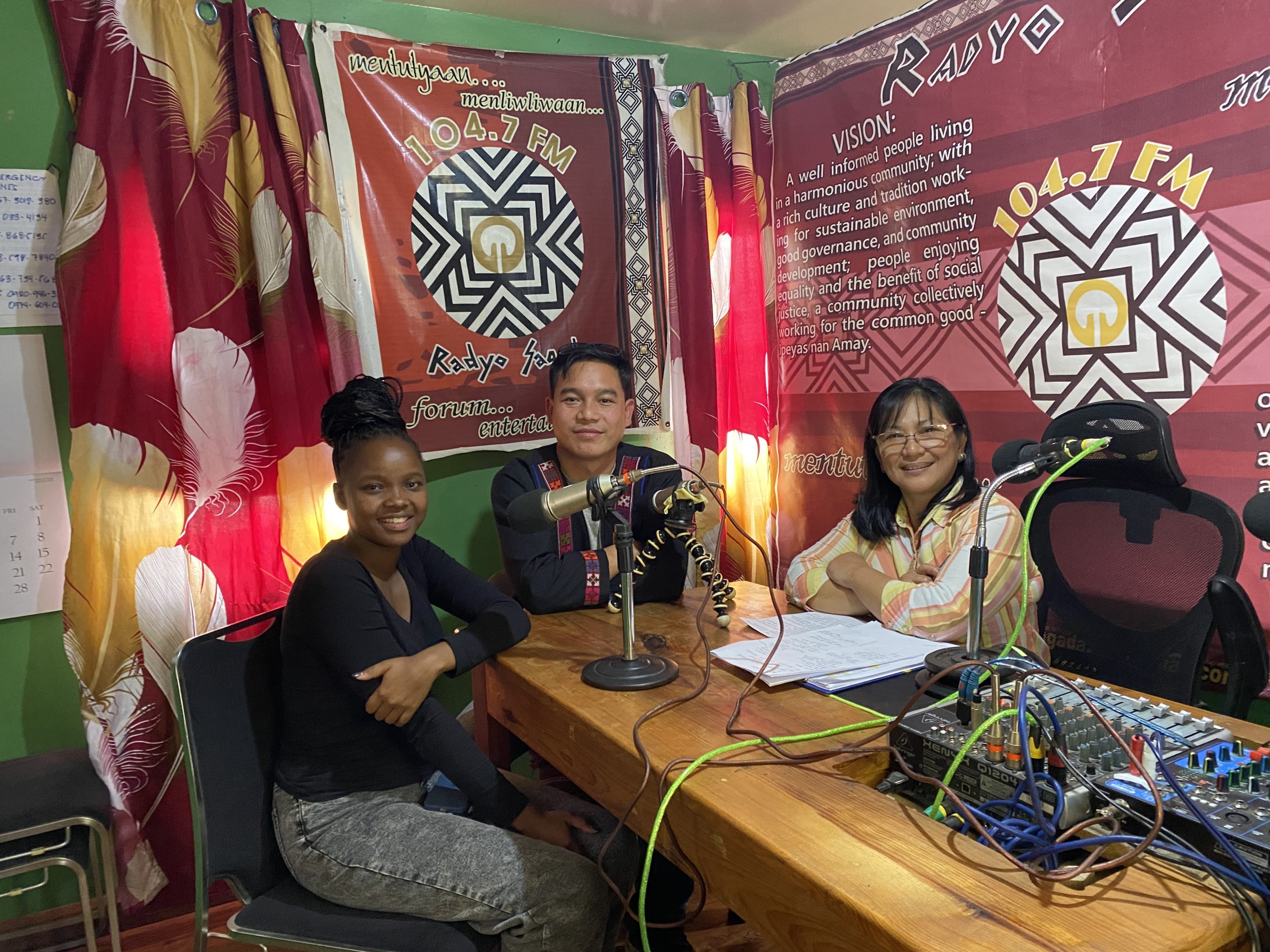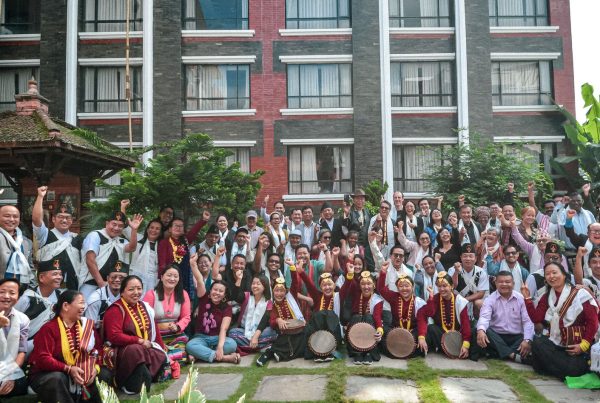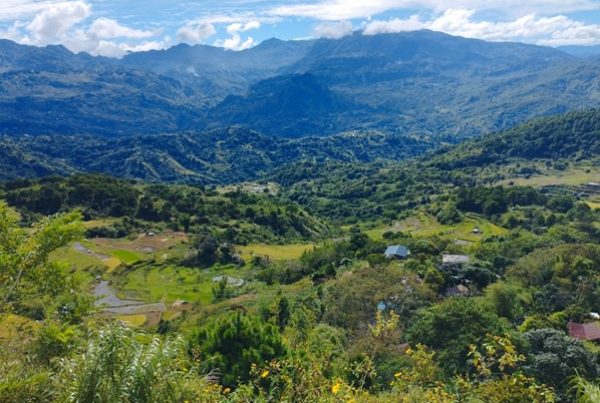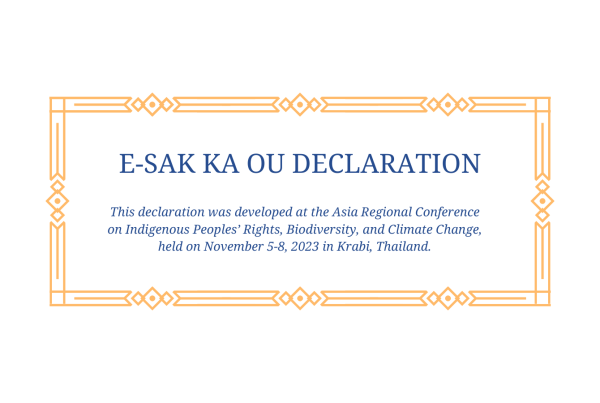On February 12, Radyo Sagada, the only indigenous community radio station in the Philippines’ Mountain Province welcomed Transformative Pathways partners from Kenya, Thailand, Malaysia, and the Philippines for a special live programme around the topic of indigenous knowledge transmission. The indigenous representatives shared their perspectives on the role of modern technology, media, communications and storytelling in the preservation and transmission of indigenous knowledge.
The importance of preserving and promoting indigenous knowledge has been recognised by the UN Convention on Biological Diversity (CBD) for its role in moving towards a planet that lives in harmony with nature. This is a key area of work for the Transformative Pathways project.
The radio program was led by Gwendoline Gay Gaongen, a representative of the Kankanaey indigenous peoples in the Philippines and station manager of Radyo Sagada, which has been a hub for cultural exchange and indigenous advocacy since its establishment in June 2010.
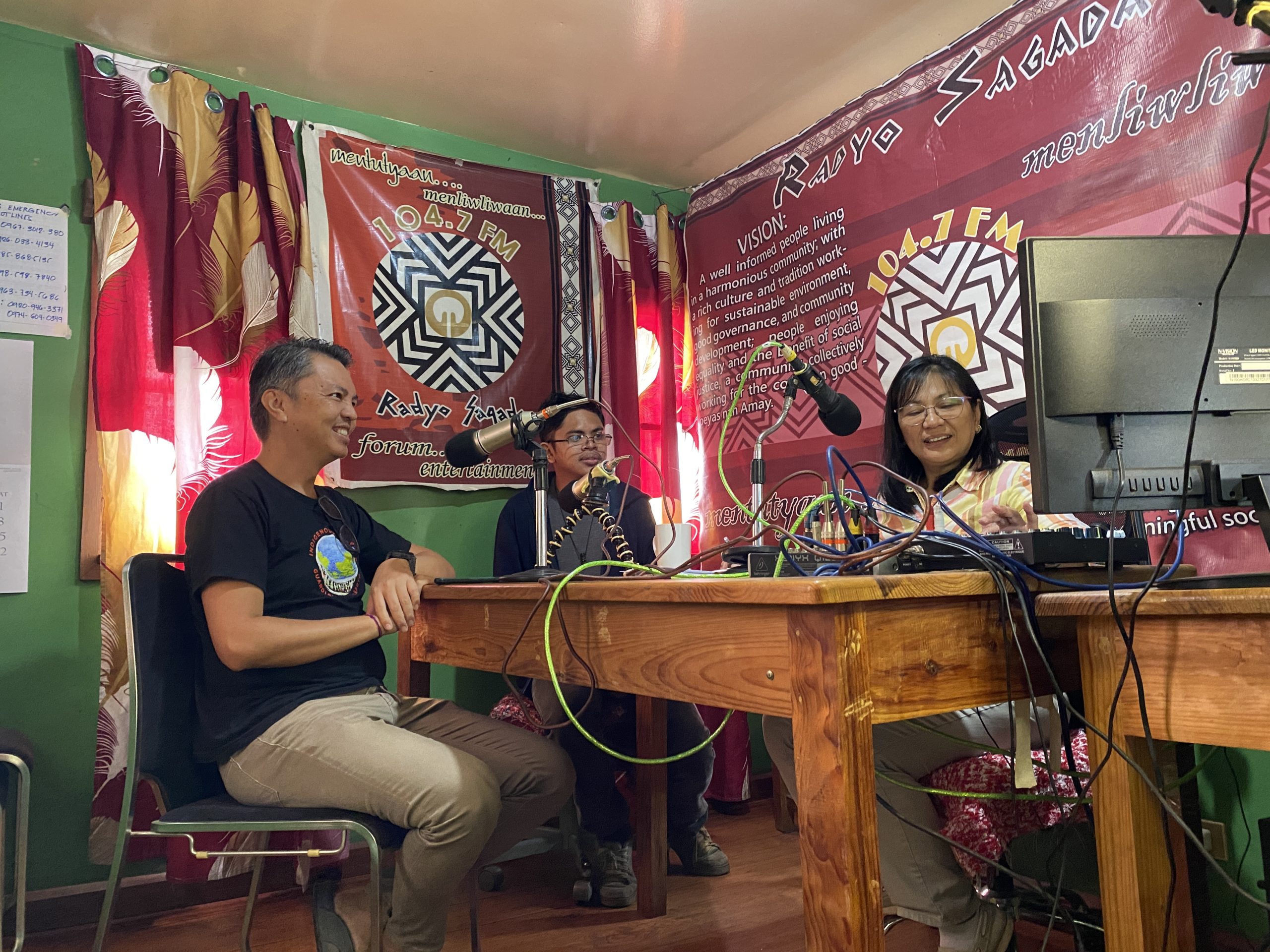
Gordon John Thomas (PACOS Trust) and Jason Verzola (PIKP) at Community Radyo Sagada. Photo by Ella Cariño, PIKP
The Role of Modern Technology in Traditional Knowledge Transmission
The first segment of the programme featured Gordon John Thomas from the Dusun Tatana people of Sabah, Malaysia, representing PACOS Trust, and Jason Verzola from Partners for Indigenous Knowledge Philippines (PIKP) who discussed the delicate balance between embracing modern communication tools while safeguarding traditional knowledge.
Gordon emphasized the benefits of social media platforms such as TikTok and Facebook in amplifying indigenous knowledge to wide audiences, noting that younger generations are increasingly using such digital platforms to share their cultural heritage. However, he also expressed concern about the potential misuse of this knowledge.
“Our traditional songs and motifs have been stolen by the mass media. This is why we need to have data sovereignty and protection among indigenous peoples. We must establish protocols to determine what knowledge can be shared publicly and what must remain within our communities. Finding this balance is crucial.” – Gordon John Thomas, PACOS Trust
Jason added that the work of documenting and recording indigenous culture and knowledge is not only about sharing but also about advocating for a deeper understanding of indigenous peoples’ contributions.
“We [indigenous youth] are here, documenting and recording our knowledge, not only to share but also to advocate for the public to fully understand the traditions of indigenous peoples.” – Jason Verzola, PIKP
The importance of indigenous knowledge transmission
The second segment of the programme featured Phnom Thano from the Karen people, who is part of the Indigenous Media Network (IMN) in Thailand, alongside Daisy Lochulit from the Pokot people, who represents the Indigenous Information Network (IIN) in Kenya. Phnom and Daisy explored similar issues, including the role of storytelling and technology in preserving and transmitting knowledge about climate change, land and biodiversity across generations.
Daisy shared how indigenous communities are now leveraging technology to document oral traditions, preventing ancient knowledge from being lost over time.
“In our communities, elders used to pass down their knowledge orally. When it is done orally it can disappear in the process. So, what we do now is, we use technology to preserve this knowledge. We visit grandmothers, they tell us stories, and we record them using the new technology.” – Daisy Lochulit, IIN
Daisy also highlighted how, through the Transformative Pathways initiative, there has been an increased appreciation of the need for indigenous youth to learn from their elders, bridging the intergenerational gap and fostering learning and transmission of crucial knowledge for cultural preservation and biodiversity conservation.
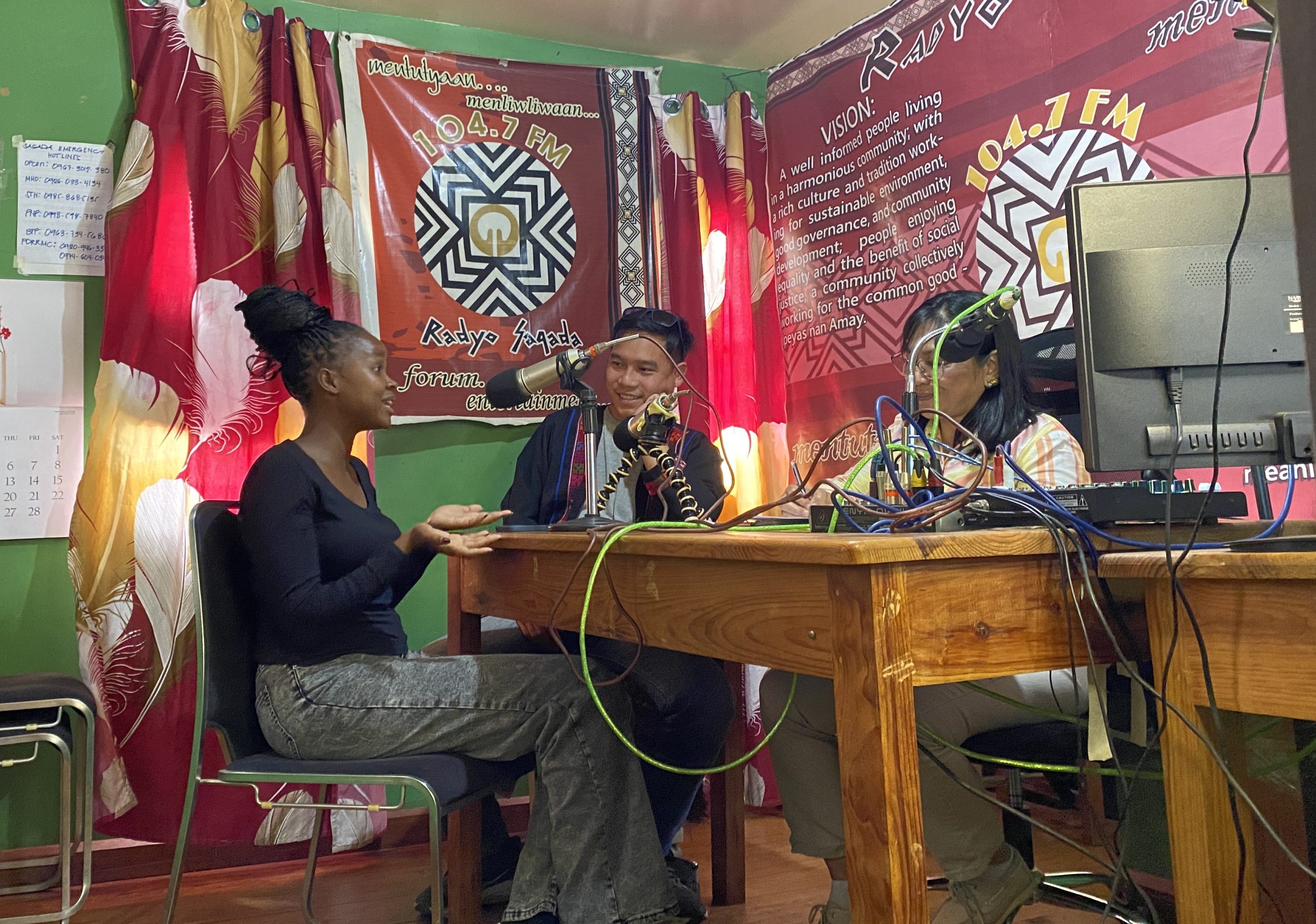
Daisy Lochulit (IIN) and Phnom Thano (IMN) at Community Radyo Sagada. Photo by Ella Cariño, PIKP
Phnom underscored that indigenous knowledge is important not only for indigenous peoples, but for the whole of humanity, highlighting its crucial role in environmental conservation.
“The value of indigenous knowledge is not only for the survival of our own people, but for the entire world – for nature, wildlife and ecosystems. Numerous reports by academics, researchers and inter-governmental organisations prove that nature remains most abundant where indigenous peoples live. This is why indigenous knowledge transmission is crucial.” – Phnom Thano, IMN
He also stressed the importance of media and communications in advocating for indigenous rights and their recognition.
“In Thailand, we actively engage in media advocacy and communications. We try to reach the public so the Thai society can understand and recognise our indigenous livelihoods. Media is an important tool that can help us to reach that goal.” – Phnom Thano, IMN
As a conclusion, host Gwendoline Gay Gaongen reflected on the significance of sharing perspectives among indigenous representatives and the importance of indigenous knowledge transmission.
“Speaking with other indigenous peoples from Malaysia, Philippines, Kenya and Thailand makes me proud to be indigenous. Because, as they have said, we have a role in our society, and it goes beyond our communities. It is part of saving the world, not only for us but also for the next generations.
“It is very important that we continue sharing our [indigenous] knowledge, so that other people who are non-indigenous would embrace it and support us, as the struggles of indigenous peoples become more difficult in the coming years with climate change, transition minerals and the hunger for our resources increasing.” – Gwendolin Gay Gaongen from the Kankanaey people, station manager of Radyo Sagada
Watch the full recording of the interviews with Gordon and Jason, and with Daisy and Phnom, and find out more about Radyo Sagada via their Facebook page.
Type: Blog
Region: Asia
Country: Philippines
Theme: Traditional and Local Knowledge
Partner: PIKP, Pacos Trust, IIN
